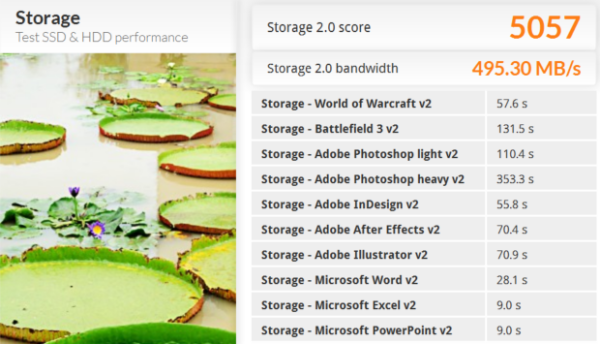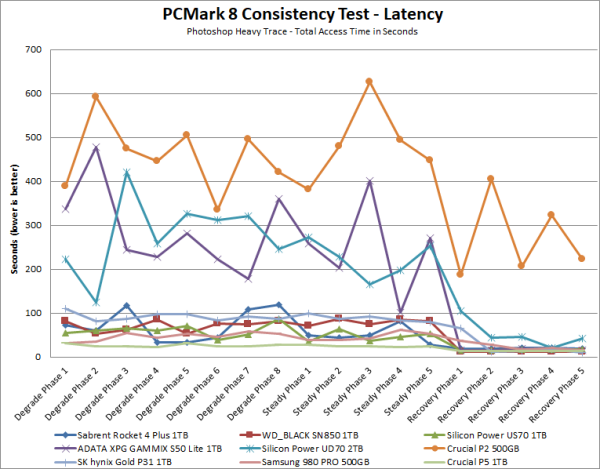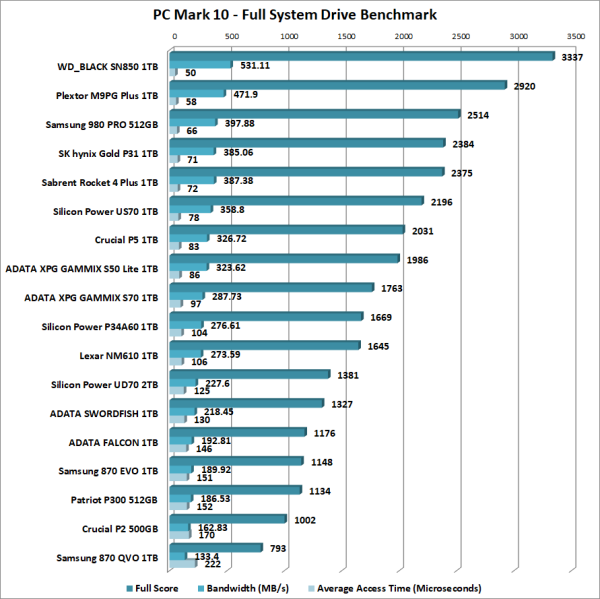PCMark 8 - Storage Test:
PCMark 8 is a complete benchmark for Windows. It includes five benchmark tests, each designed around a specific scenario. The storage benchmark measures drive performance using real-world traces recorded from Adobe Creative Suite, Microsoft Office and a selection of popular games.

PCMark 8 also includes a consistency test which measures the performance consistency and degradation tendency of a storage system. The test reports the performance level at the start, the degraded steady-state and the recovered state as well as the number of iterations required to reach the degraded state and the recovered state. For this test, we are focusing on the Adobe Photoshop (Heavy) trace and will look at both the bandwidth and latency of the drive


The Rocket 4 Plus' performance was hit and miss in this test. The drive was relatively quick during the degradation and steady phases. However, it lagged behind the SK hynix Gold P31 and Crucial P5 during the recovery phase, topping out at only 811 MB/s.
PCMark 10 - Full System Drive Benchmark:
PCMark 10's Full System Drive Benchmark uses a wide-ranging set of real-world traces from popular applications and common tasks to fully test the performance of the fastest modern drives. This benchmark produces an overall score as a measure of drive performance. Comparing devices is as simple as comparing scores. The tests also measure and report the bandwidth and average access time performance for the drive.

Thanks to its high bandwidth and low latency, the Rocket 4 Plus did fairly well in PCMark 10's Full System Drive Benchmark. Unfortunately, this wasn't enough to top the WD_BLACK SN850, Samsung 980 Pro or PCIe 3.0 SSDs like the Plextor M9PG and SK hynix Gold P31.

